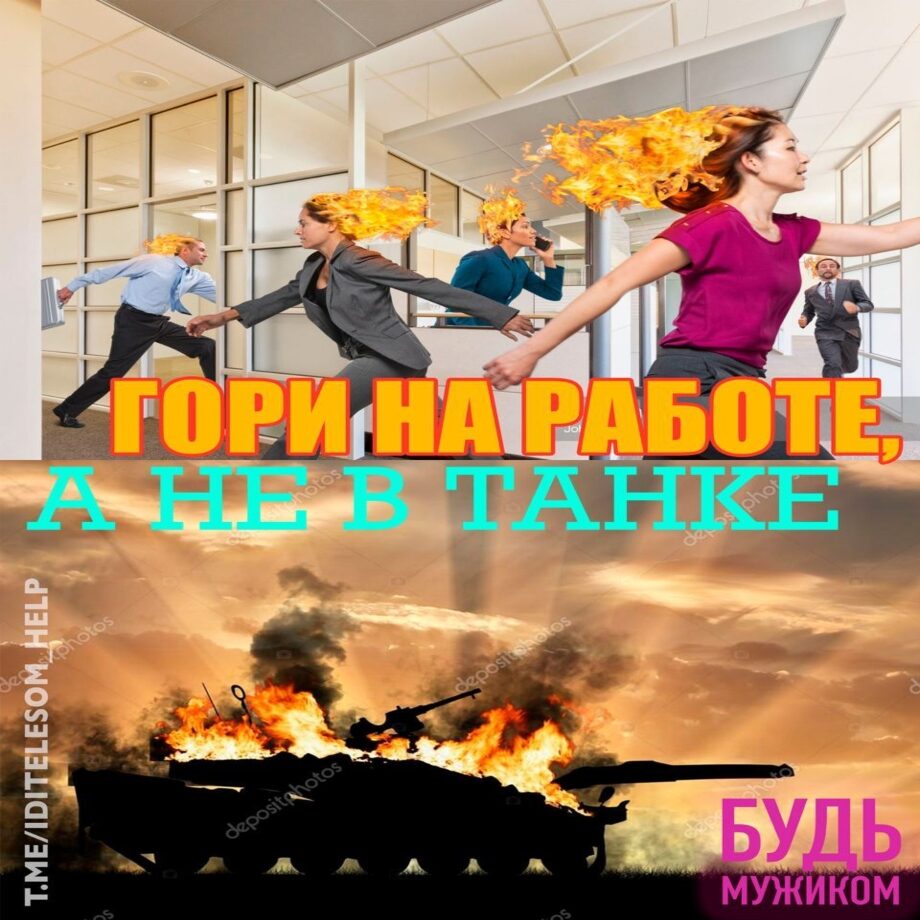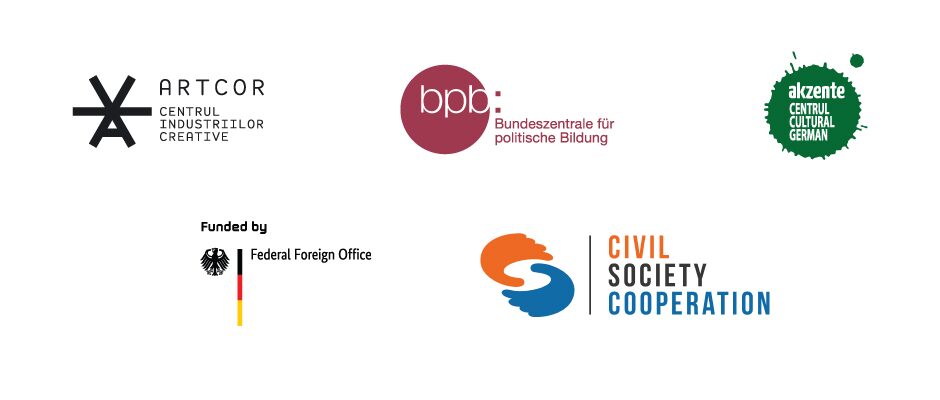How do charity organisations in Russia cope after Russia’s military invasion of Ukraine?
This article was produced in the framework of the "Unprejudiced" project with the support of the Eastern Partnership Programme and the German Federal Foreign Office in autumn 2022.
Author: Ksenia Idrisova
The Dom s Mayakom hospice charity
The work of charity non-governmental organisations (NGOs) often falls somewhat under the radar of daily news coverage. In recent years, many NGOs in Russia have been labelled “foreign agents'' and deemed to be “under foreign influence” if they receive support from abroad. The move has been criticised by The European Court of Human Rights (ECHR) as violating the human rights convention.
But the events after February 24th, 2022, have taken a further toll on charities, many of which are now struggling to stay afloat.
Punished for their anti-war stance
"Be on fire in the office, not in the tank" - an
anti-war slogan for the "Idite Lesom" anti-draft organisation says.
Earlier this year, it has become known that those NGOs who openly voiced their anti-war stance, have been cut off from state grants. Back in February 2022, 576 NGOs wrote an appeal to the Russian president asking to stop military activities in Ukraine: “A war is a humanitarian catastrophe which multiplies pain and suffering. Its consequences bring to naught many years of our efforts.” The collection of signatures under the letter had to be stopped abruptly due to the newly introduced amendments to the criminal legislation outlawing criticism of the Russian military and its actions in Ukraine. Since then, over 100 criminal cases have been launched in Russia for “discrediting” the Russian army.
As a result, many of the charities who signed the open letter (106 out of 136) have been refused presidential grants despite having previously received them for many consecutive years. These grants are crucial for keeping their activities afloat. “We have failed to receive 35 million [roubles], but we cannot allow this to prevent thousands of people from getting our help,” wrote Nyuta Federmesser, the founder of the hospice charity fund Vera.
The authorities, however, have denied that the open letter could have affected the grant selection process: “No NGO is immune to losing,” director general of the presidential grants fund Ilya Chukalin told business daily Kommersant back in July. According to the paper, many NGOs have refused to comment on the competition results in fear of facing negative consequences.
Since February 24th, some NGO founders have been forced to flee Russia in fear of being persecuted by the authorities. Oncologist and former CEO of the “Not for Nothing” charity Ilya Fomintsev was among those who left Russia earlier this year after having been sentenced to eight days in prison for protesting against the war.
Painful ethical dilemmas
Those who stayed are facing painful ethical dilemmas - whether they should continue cooperation with the Russian state authorities or not. The situation is somewhat akin to the Trolley Problem - a thought experiment in which one is faced with a choice of sacrificing one person’s life to save several.
“Shall we sign collective letters? Shall we take grants? Shall we criticise the authorities on a specific policy or stay silent? These, certainly, are difficult questions for NGO directors, and there are no right answers,” says Grigory Sverdlin, former director of the biggest charity organisation for homeless people, Nochlezhka. Sverdlin left Russia soon after the war started. He has now founded a new organisation entitled “Idite Lesom” (loosely translated as “bugger off” in English), aimed to help Russians avoid conscription or leave the military after being drafted.
Anti-government views can indeed jeopardise the activities of charities in Russia, and such fears are fully justified, says Lyubov Arkus, the founder of the Anton is Right Here NGO supporting people with autism.
“It is much harder to sit and do nothing than do at least something”
Ukrainian refugees in Moscow
“After February 24th, I thought it was impossible to simply continue doing what I was doing earlier. I had to do something else, something extra,” says Lida Moniava, the director of the House with Beacon [Russian: Dom s Mayakom] children hospice charity. She says that soon after the war started, volunteers in Moscow spontaneously got together to help Ukrainian refugees. Their new charity organisation, which now comprises over 500 volunteers, finally received its official status in October.
“Terrible things are happening which we have become witnesses to. It is much harder to sit and do nothing than do at least something,” says Moniava, - “People are tormented by the sense of guilt and responsibility and this work is one of the ways to do at least something to mend the consequences of the horrible events happening now.”
“Small donations are keeping us afloat”
NGOs have been losing regular donations after online payment services, such as Apple Pay, Google Pay and Paypal were switched off in Russia.
“We have lost [donations] sharply and significantly after 24th February - [from] foreign private benefactors, foreign partners, emigrants without Russian bank cards and without income,” Elena Kupershtokh, the executive director of the Dom s Mayakom children hospice charity, tells Goethe Institute, - “small donations are keeping us afloat - there are a lot of them. Thousands of people are donating small sums of money. Our budget of a billion [roubles] is made of 100-rouble [1,64 Euro] donations.”
“Our overall drop in individual donations from January to September has reached 100m roubles [1.6m Euro] compared to the previous year, which accounts for 15%,” says Ekaterina Shergova, the director of Podari zhizn (Grant Life) charity, in a comment to Goethe Institute. There has also been a significant drop in donations from companies-benefactors, who have left the Russian market. “Every fifth company who had regularly donated to our fund in the past has at the moment stopped doing so because they are in crisis themselves and do not have a chance to help any longer… Almost all companies from the list of those who have suspended operations in Russia cannot guarantee their support to our fund, which is over 80m [roubles] per year,” Shergova explains. “Our donations are falling but our commitments are only growing,” she says.
Medical deliveries have been disrupted
Podari Zhizn charity
Another problem is disrupted logistics of international medical deliveries. Previously, medicines were delivered directly to Russia, but there is no such option any more. The delivery process is taking significantly longer and has become less stable, which can be critical for temperature-sensitive medicines. The same applies to the deliveries of medical equipment, which can now take up to 200 days. Other medical equipment can no longer be delivered to Russia, for instance, foreign-made tracheostomy tubes, which cannot be replaced, says Elena Kupershtokh, the executive director of the Dom s Mayakom children hospice charity.
Another charity for people with amyotrophic lateral sclerosis and motor neuron disease has always found it difficult to collect donations for its patients in Russia, but the situation has taken a turn for the worse due to the drop in donations. People in Russia are reluctant to help adults with incurable and rare diseases as it is because they lack awareness of such illnesses, explains the director of the Live Now NGO Natalya Lugovaya. The fund is currently trying to collect 5m roubles (about 83,000 Euro) by the end of October or else its accounts can get frozen: “The work will stall and we will not be able to accept donations any longer or receive the grants that have already been issued,” the message on their website says.
“They have hit where it hurts the most”
Some medical technologies are becoming inaccessible to doctors in Russia. For example, chemical reagents needed for purging donor bone marrow before transplanting it to a child are no longer available.“This technology was crucial to lower the risk of the dangerous reaction ‘graft versus host disease’,” the director of the Podari Zhizn charity explains. It will take years to set up the manufacturing of these reagents in Russia and children need treatment now. As a result, doctors are forced to transplant donor bone marrow without purging it first and use additional medicines to prevent a child from developing complications.
Pharmacies are running low on critical care medicines and the prices for the existing ones have skyrocketed due to Western sanctions, says Viktoria Agadzhanova, the director of the Alive charity helping severely ill adults.
“The sanctions are most of all affecting regular people,” she continues, - “We can live without foreign clothing and appliances but we cannot survive without medicines and Western medical equipment. I do not know whether the sanctions could have been any different. But they have hit where it hurts the most, that’s a fact.” The charity cannot afford taking on new patients anymore, and is struggling to help the existing ones.
Many fear that difficult times for Russian charities are yet to come when the remaining grants run out. “The situation is so unstable that it is impossible to predict [what will happen next] - everything can become so bad that we will fall back not by 20 but by 120 years,” Grigory Sverdlin, former director of the Nochlezhka homeless charity says.
![[Poza 3] Centrul de caritate Dom s Mayakom [Poza 3] Centrul de caritate Dom s Mayakom](/resources/files/jpg1209/picture_3ed-formatkey-jpg-default.jpg)

![[Poza 4] - Refugiați ucraineni la Moscova (Credit: Novyye Izvestia [Poza 4] - Refugiați ucraineni la Moscova (Credit: Novyye Izvestia](/resources/files/jpg1209/picture_4ed-formatkey-jpg-default.jpg)
![[Poza 5] Organizația caritabilă Podari Zhizn (Credit: [Poza 5] Organizația caritabilă Podari Zhizn (Credit:](/resources/files/jpg1209/picture_5ed-formatkey-jpg-default.jpg)
![[Imaginea 2] Organizația caritabilă Anton Este Chiar Aici (Credit: [Imaginea 2] Organizația caritabilă Anton Este Chiar Aici (Credit:](/resources/files/jpg1209/picture_2ed-formatkey-jpg-w245.jpg)
